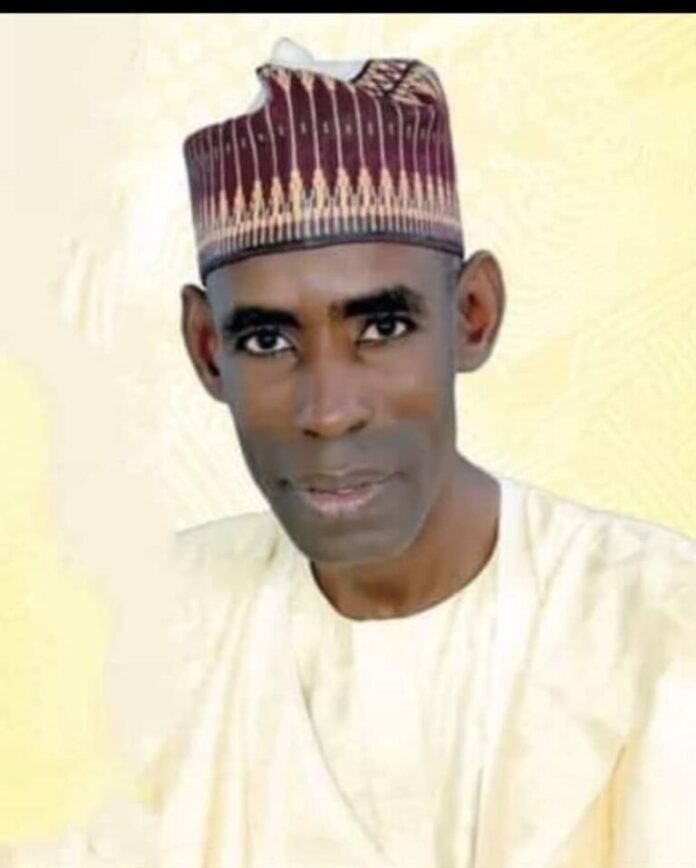Re: The northern identity and unity are more than perception; they are reality, by Engr. Bello Gwarzo Abdullahi, FNSE
Anyone familiar with the intricate socio-cultural fabric of Northern Nigeria—its peoples, history, and enduring interconnections—will find it difficult to refute the timely and insightful arguments presented by A. G. Abubakar in his article titled “The Northern Identity and Unity Are More Than Perception; They Are Reality.” His assertions resonate deeply with the lived realities and collective memory of the region.
Indeed, the Northern Nigerian identity is far more than a mere perception—it is a lived and continuous reality. Our shared experiences, values, and historical bonds have formed a resilient foundation that, while strained in recent years, still holds immense potential for renewal and resurgence. In this context, Abubakar’s contribution sheds light on several key truths that warrant both reflection and action.
1. From Tranquility to Turmoil: A Region in Transition
Northern Nigeria, once renowned for its peaceful coexistence and spirit of hospitality, now finds itself grappling with complex layers of insecurity and social unrest. Ethno-religious tensions, communal violence, and economic hardship have eroded the social cohesion that historically defined the region.
These challenges, largely rooted in decades of poor governance, rising inequality, unemployment, and the weaponization of religion and identity, have left communities divided and disillusioned. The transition from harmony to hostility is both tragic and instructive—signaling the urgent need for introspection and reform.
For instance, in states like Plateau, the clashes between farming and herding communities have escalated due to land scarcity and environmental degradation. This has led to a breakdown in communication and understanding, further exacerbating the existing tensions.
2. The Roots of Division: A Crisis of Leadership and Justice
The increasing frequency of conflict between farming and herding communities, particularly in states like Plateau, Taraba, and Kaduna, is symptomatic of deeper structural issues—land scarcity, environmental degradation, and uneven development.
At the heart of this crisis lies a failure of leadership. Politicians and some religious figures have, for years, exploited ethnic and sectarian divides to serve narrow interests. This deliberate manipulation of identity not only undermines peace but also destroys the trust and solidarity that once bound our diverse communities together.
An example of this is the political rhetoric that often fuels animosity between different groups, leading to further polarization and deepening of historical grievances.
3. A Legacy of Unity: Shared History and Common Destiny
Despite these contemporary challenges, Northern Nigeria remains rooted in a long and rich tradition of unity. Long before colonial boundaries, diverse groups—Hausa, Fulani, Kanuri, Tiv, Nupe, Jukun, and many others—coexisted, traded, intermarried, and shared governance structures.
Colonial and post-independence eras further solidified these relationships, embedding a collective Northern consciousness that transcended tribal and religious affiliations. The concept of a united North was not a modern political construct, but the natural result of centuries of mutual interaction, tolerance, and cooperation.
For instance, the historical alliances formed between different ethnic groups for trade and security purposes demonstrate the deep-rooted unity that has characterized the region for centuries.
4. Present-Day Integration: A Quiet Strength
Today, Northern Nigeria continues to exhibit deep interethnic integration. Across towns and cities, countless families trace their heritage to multiple ethnic and religious backgrounds. Hausa-Fulani families with Tiv, Idoma, or Nupe ancestry; Christian households in Muslim-majority communities; and vice versa—these examples are commonplace and longstanding.
This lived reality of integration reflects a quiet strength. It stands as a testament to our history of inclusion, mutual respect, and cultural fluidity—often prevailing in spite of political narratives aimed at division.
The intermarriages and cultural exchanges that occur between different ethnic and religious groups in the North exemplify the organic integration that has been a hallmark of the region’s societal fabric.
5. A Call for Renewal: Justice, Reform, and Reconciliation
Preserving and strengthening the unity of Northern Nigeria is not a choice—it is a necessity. However, this unity must be anchored in justice, good governance, and inclusive development. The path forward must include:
i) Equitable access to education, healthcare, and economic opportunity;
ii) Transparent, accountable leadership at all levels of government;
iii) Combating misinformation and divisive propaganda;
iv) Supporting grassroots peacebuilding and conflict resolution initiatives;
v) Encouraging interfaith and interethnic dialogue to bridge understanding.
READ ALSO: As the 2027 plot to unseat the ruling party thickens, by Engr. Bello Gwarzo Abdullahi, FNSE
We must acknowledge uncomfortable truths, abandon divisive rhetoric, and revive the values of fairness, empathy, and integrity that once defined our region.
Conclusion: A Reality Worth Defending
In light of the above, it is incumbent upon all stakeholders—leaders, intellectuals, youth, civil society, and traditional institutions—to reject the forces of division and reclaim the soul of Northern Nigeria.
Our diversity is not a burden; it is a strength. Our unity is not a myth; it is a historical and lived reality that must be safeguarded. If we embrace our shared identity and recommit to justice, equity, and truth, we can overcome today’s challenges and build a more peaceful, prosperous, and inclusive North.
Let us not merely reminisce about our past unity—Let us live it, nurture it, and defend it.
bgabdullahi@gmail.com
Follow the Neptune Prime channel on WhatsApp:
Do you have breaking news, interview request, opinion, suggestion, or want your event covered? Email us at neptuneprime2233@gmail.com





